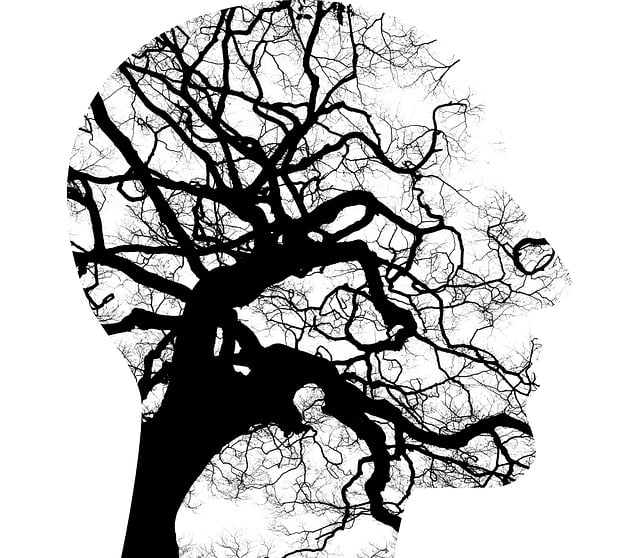Burnout among healthcare professionals is a significant concern, driven by work-related stress. Arvada Major Life Transitions Therapy (AMLT) offers a comprehensive solution by helping providers manage stress, grief, and trauma through counseling and evidence-based practices. This therapy promotes resilience, enhances coping strategies, and advocates for better work environments. By integrating AMLT into their routines, healthcare workers can maintain well-being, improve patient care, and contribute to systemic mental health improvements, ultimately fostering a sustainable healthcare system.
Healthcare provider burnout is a growing concern, impacting not just individuals but the broader healthcare system. This article explores comprehensive strategies to prevent and mitigate burnout among healthcare professionals. We delve into understanding the root causes of burnout, highlighting the significance of therapy and counseling as vital tools for resilience. Additionally, we present practical work-life balance strategies and coping mechanisms, offering a specialized approach with Arvada Major Life Transitions Therapy. By implementing these tactics, healthcare providers can foster sustainability, well-being, and enhanced patient care.
- Understanding Burnout in Healthcare Providers
- The Role of Therapy and Counseling in Prevention
- Work-Life Balance Strategies for Sustainable Practice
- Building Resiliency and Coping Mechanisms
- Arvada Major Life Transitions Therapy: A Specialized Approach
Understanding Burnout in Healthcare Providers

Burnout among healthcare providers is a growing concern, impacting not only individual well-being but also patient care and system performance. It’s more than just feeling temporarily stressed; it’s a state of emotional exhaustion, depersonalization, and reduced personal accomplishment, often stemming from prolonged exposure to work-related stress. Healthcare professionals, already dedicated to caring for others, may struggle to maintain their own mental health due to long hours, high patient loads, and emotionally challenging situations. These factors can lead to a gradual detachment from work and a sense of dissatisfaction, ultimately affecting their ability to provide quality care.
Arvada Major Life Transitions Therapy offers valuable support in addressing burnout. Through therapy, healthcare providers can explore underlying issues contributing to their stress, develop coping strategies for managing difficult scenarios, and enhance resilience. Techniques focused on mood management and building mental fortitude are crucial tools in preventing burnout. Additionally, advocacy for better work environments, including policy changes related to Mental Health Policy Analysis and Advocacy, can create systemic support for healthcare professionals’ well-being, ensuring they have the resources needed to thrive in their roles.
The Role of Therapy and Counseling in Prevention

Therapy and counseling play a pivotal role in preventing burnout among healthcare providers, offering them essential tools to navigate challenging professions. Arvada Major Life Transitions Therapy, for instance, can help professionals process stress, grief, and trauma that often accompany high-pressure medical roles. This form of therapy isn’t just about managing symptoms; it focuses on emotional well-being promotion techniques, equipping providers with coping mechanisms to deal with demanding situations.
By integrating counseling into their routines, healthcare workers can gain insights into their feelings and behaviors, learn anxiety relief strategies, and develop resilience. Moreover, mental health policy analysis and advocacy, stemming from such therapy, can drive systemic changes in work environments, addressing risk factors for burnout and fostering a culture of support. This holistic approach not only benefits individual providers but also contributes to the overall quality and sustainability of healthcare services.
Work-Life Balance Strategies for Sustainable Practice

Maintaining a healthy work-life balance is an essential strategy for healthcare providers to prevent burnout and promote sustainable practice. Arvada Major Life Transitions Therapy offers valuable resources for professionals navigating challenging times, including stress management workshops designed to equip individuals with effective conflict resolution techniques. By participating in these programs, providers can enhance their resilience and develop healthier coping mechanisms.
Incorporating self-care practices into daily routines is crucial. This may involve setting clear boundaries between work and personal time, prioritizing adequate sleep, engaging in regular physical activity, and pursuing hobbies or activities that bring joy and relaxation. Additionally, seeking support from colleagues, mentors, or therapy can provide much-needed perspective and assistance during periods of high stress or major life transitions.
Building Resiliency and Coping Mechanisms

Healthcare providers often face challenging situations on a daily basis, which can lead to burnout if they don’t have adequate coping mechanisms in place. Building resilience is a crucial step in preventing burnout; it equips professionals with the ability to adapt and recover from stressful events. This process involves developing personal resources and strategies that enable them to navigate through adversity. One effective method is incorporating therapy, such as Arvada Major Life Transitions Therapy, which provides a safe space for providers to explore their emotions, gain new perspectives, and learn healthy coping skills.
Additionally, trauma support services can play a significant role in burnout prevention by addressing any underlying traumatic experiences that may be contributing factors. By focusing on stress management and cultivating positive thinking, healthcare providers can enhance their overall well-being. These mechanisms not only help them cope with work-related pressures but also enable them to maintain a healthy work-life balance, ensuring they can continue to provide quality care for years to come.
Arvada Major Life Transitions Therapy: A Specialized Approach

Arvada Major Life Transitions Therapy (AMLT) offers a specialized approach to addressing healthcare provider burnout. This innovative program recognizes that healthcare professionals often face significant life transitions, such as career changes, relocation, or personal challenges, which can contribute to stress and exhaustion. AMLT provides a safe and supportive environment where providers can explore these transitions, develop coping strategies, and enhance their resilience.
Through a combination of individual therapy sessions, group support, and evidence-based practices like mood management techniques and self-awareness exercises, AMLT equips healthcare workers with the tools necessary to navigate life’s ups and downs. By prioritizing their own well-being, providers can better serve their patients and contribute to the overall development of public awareness campaigns focused on mental health and burnout prevention in the medical field.
Healthcare provider burnout is a significant concern, but by implementing targeted strategies, it can be mitigated. Understanding burnout, leveraging therapy and counseling, striking a work-life balance, building resilience, and exploring specialized approaches like Arvada Major Life Transitions Therapy are all vital components of a comprehensive prevention plan. These strategies not only enhance job satisfaction but also improve patient care and overall well-being for healthcare providers.














